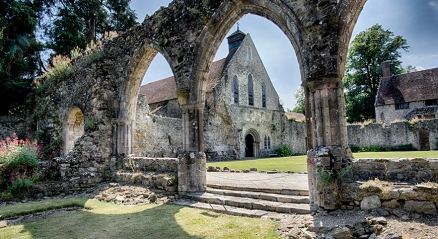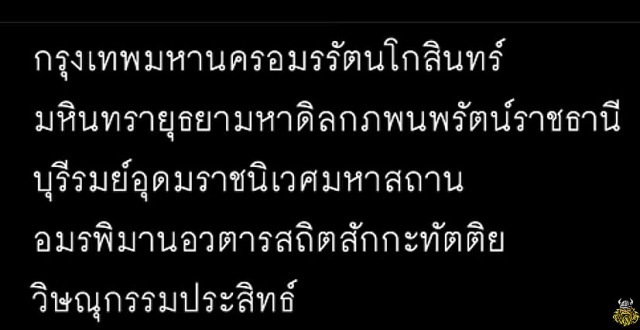The Australian writer known as Afferbeck Lauder (his real name was Alastair Morrison) died about twenty years ago but left behind him a wonderful legacy of books including Let Stalk Strine and Nose Tone Unturned. Lauder drew on the strange and strangulated pronunciation of the English language by some Australians, and coined the wonderful phrases
- He nair freddder penny *
- Yuma sketcher rare cut *
Lauder would immediately have understood the title to this travel blog – a journey not in any geographical zone but one through the languages spoken in several of them.
Another writer – a bit older and a bit better known – put it rather more elegantly when Juliet asked:
- What’s in a name? That which we call a rose
By any other name would smell as sweet.”
Juliet was worrying why “Montague” could be so hateful to a “Capulet”, but there are many instances when names – or their pronunciations – have caused anguish on a greater or lesser scale, and usually to speakers for whom English is not a first language … and even for those who know it all there are stumbling blocks.
“Montague” and “Capulet” are pretty obvious – but how about some of the fine old families from England whose names are Fotheringay, Fiennes or Beauchamp? Those in the know know that (finger to the nose) these fine folk are really “Fungeys”, “Fines” and “Beechums”.
And speaking of fingers to noses, as we were, there is a lovely French saying:
 Les doigts dans le nez
Les doigts dans le nez
Or “fingers in the nose”. It does not refer to nasal digital excavations, but simply means “as easy as pie” or “a piece of cake” or “taking candy from a baby” … and I am sure if these English and American expressions were translated directly into French or Moldovian similar misunderstandings would occur.
- Kernul Worrik Wooster sore a nome with a nife in a troff …
Is it easier if the bizarre but correct English spelling is applied?
- Colonel Warwick Worcester saw a gnome with a knife in a trough

Beaulieu Abbey
And place names can cause as much confusion, too, when Beaulieu is pronounced “bewley”, the US state of Arkansas (birthplace to Billy Bob Thornton, Bill Clinton, Johnny Cash and A Boy named Sue) is really “Ah Can Saw” and the fine state of Jawja is really Georgia. In Australia there are towns called Wagga Wagga, Woolloomooloo, and Goombungee, and in Wales there is the famous little village with one of the world’s longest names: Llanfairpwllgwyngyllgogerychwyrndrobwllllantysiliogogogoch
 The name means: Parish [church] of [St.] Mary (Llanfair) [in] Hollow (pwll) of the White Hazel [township] (gwyn gyll) near (go ger) the rapid whirlpool (y chwyrn drobwll) [and] the parish [church] of [St.] Tysilio (Llantysilio) with a red cave ([a]g ogo[f]goch).
The name means: Parish [church] of [St.] Mary (Llanfair) [in] Hollow (pwll) of the White Hazel [township] (gwyn gyll) near (go ger) the rapid whirlpool (y chwyrn drobwll) [and] the parish [church] of [St.] Tysilio (Llantysilio) with a red cave ([a]g ogo[f]goch).
But that is perhaps not as bad as the famous sentence:
- Though the rough cough and hiccough plough me through, I ought to cross the lough
where “…ough” can make the different sounds of “ooo”, “uff”, “off”, “ow”, “or”: is it any wonder that the English language is among the most difficult to learn?
Polish, I am told, is THE most difficult, but when learned people start to write about English they might refer to something that sounds like a deadly disease – Lexicostatistical glottochronology. After I carefully read the chapter following that heading in David Crystal’s excellent Cambridge Encyclopedia of Language, I was further confused when my computer’s automatic Spell Check device suggested that Crystal had got it all wrong anyway, and that the correct spelling of “encyclopedia” is “encyclopaedia” … but then more digging and researching told me that Crystal was right after all, as the “ae” or even “æ” are pseudo-Greek … and so not true at all.
Crystal clear now?
And then I found that Mr Wikipedia could clear it all up for me quite simply, as:
- Lexicostatisticsis a method of comparative linguistics that involves comparing the percentage of lexical cognates between languages to determine their relationship. Lexicostatistics is related to the comparative method but does not reconstruct a proto-language. It is to be distinguished from glottochronology, which attempts to use lexicostatistical methods to estimate the length of time since two or more languages diverged from a common earlier proto-language. This is merely one application of lexicostatistics, however; other applications of it may not share the assumption of a constant rate of change for basic lexical items.
Yes – this is all well and good, but what time does the train to Bangkok leave?
Ah yes – Bangkok. In Thai, this capital city is known as Krung Thep Maha Nakhon but this, too, is a bit of an over-simplification, as the city’s real name is
- Krung Thep Mahanakhon Amon Rattanakosin Mahinthara Ayuthaya Mahadilok Phop Noppharat Ratchathani Burirom Udomratchaniwet Mahasathan Amon Piman Awatan Sathit Sakkathattiya Witsanukam Prasit
which certainly puts that little Welsh village firmly in its place!
In Roman script the city’s name is about twenty-one words long, but as the Thais don’t believe in much punctuation or arbitrary division of words, it would usually be written as one – very long – word, using just about every one of the Thai language’s forty-four consonants and fifteen vowels.
This may explain why Thai names are just as difficult and confusing and amusing as English, American or Australian names.
My name is Christopher which traditionally means “The carrier or bearer of Christ” but when he was a small child my younger brother found it hard to pronounce and somehow shortened it to “Toto” – which later got shortened to “Tote” – the family nickname by which I have been known for many years.
But! Yes! There is more!
“Tote” means to carry, so my brother’s abbreviation was quite accurate … and in Thailand, most Thais spell my name “Christ” and I am called Khun Christ – or “Mr Christ”. So what goes around …
 A less divine side of my name is found throughout Asia, as TOTO is a very popular brand of bathroom ceramics – so the next time you are using a urinal, just check that it is not this Toto that is on the receiving end.
A less divine side of my name is found throughout Asia, as TOTO is a very popular brand of bathroom ceramics – so the next time you are using a urinal, just check that it is not this Toto that is on the receiving end.
I was recently in Cambodia and saw an advertisement that stated:
- TOTO – the best for your bed
so it is obvious that news of my super-stud qualities and abilities has spread far and wide … Actually, I have now spent some time searching the web but cannot find out what the Cambodian TOTO is. Bed sheets? Innerspring mattresses? Pillows?
Perhaps it is me after all …
But to return to Thai names, which are often long and involved. Before 1913 most non-royal Thais had just one name – rather like many Indonesians today. After 1913 family names became compulsory and every name had to be unique, so there is now a young man studying in the USA whose name is Vathanyu Chaipattanawanich and a former colleague of mine is Anocha Poowapittayanon.
As I mentioned in an earlier blog, The Sultan of Brunei is formally known as His Majesty Sultan Haji Hassanal Bolkiah Mu’izzaddin Waddaulah ibni Al-Marhum Sultan Haji Omar ‘Ali Saifuddien Sa’adul Khairu Waddien, Sultan and Yang Di-Pertuan of Brunei Darussalem, and his wife is Her Majesty Duli Raja Isteri Pengiran Anak Hajah Saleha binti Al-Marhum Pengiran Pemancha Pengiran Anak Haji Mohamed Alam.
Mr Chaipattanawanich is, however, known as “Tab” and my friend Ms Poowapittayanon is “Aey”. The Sultan of Brunei, however, is known as Haji Hassanal Bolkiah Mu’izzaddin Waddaulah ibni Al-Marhum Sultan Haji Omar ‘Ali Saifuddien Sa’adul Khairu Waddien, Sultan and Yang Di-Pertuan of Brunei Darussalem.
Yes – the Thais are clever and have adopted a much easier way of chatting to each other. Like me – where Christopher became Tote – Thais usually use a nickname that is much shorter than their formal name.
The former Prime Minister of Thailand’s nickname was “Poo” (or Miss Poo, if you were being a bit more formal – but as she is now in self-imposed exile rather than facing a five-year prison sentence, perhaps the formality is not necessary). It is ironic, at least, that her family name of Shinawatr means “does good routinely”.
General Prem Tinsulanonda – a greatly revered Thai statesman – referred to the current Prime Minister, HE General Prayut Chon-o-cha, as “Tu”.
In French, there is a verb “Tutoyer”, meaning to go from the formal “Vous” to the less formal and more friendly “Tu” form of address. However General Prem was not using the informal version of an address – General Prayut’s nickname is “Tu”.
Or “cupboard”.
In the Thai language “tu” is a cupboard, and “tu yen” is a cold cupboard – or what we more often call a refrigerator.
English nicknames are amusing (Bunny, Jumbo, Legs, Granny, Knees are all boys I was at school with many years ago – I became Granny II) and Thai nicknames or English equivalents of their nicknames are just as much fun. A short selection would include the following friends, past students, colleagues or staff at various restaurants and hotels I have come to know:
 A, Cupboard, Ju, First, Kitty, Poo, Porn, Oye, Noi, Noy, O, Oh, Ooo, Tum, Toon, Pai (=to go), Jazz, Chicken, Bomb, Ice, Fook, Boo, March, Cake, Guitar (his name used to be Music), Mango, Golf, PP and Dang.
A, Cupboard, Ju, First, Kitty, Poo, Porn, Oye, Noi, Noy, O, Oh, Ooo, Tum, Toon, Pai (=to go), Jazz, Chicken, Bomb, Ice, Fook, Boo, March, Cake, Guitar (his name used to be Music), Mango, Golf, PP and Dang.
One of the security guards at my condo is known as Gai (Chicken) and a teacher friend is Kai (egg) – not sure which comes first although in the Thai alphabet Gor Gai comes before Kor Kai – but we also have First, Big, Smart … but never “Last”, “Fat” or “Thick”. I taught students named Tiger and Farm and Fern – but so far have not met anyone called Grapefruit.
Identical twins I know are called Ning and Noong, and two other friends are called Ms ON (Aon) and Mr OFF (Aof). Rock band names are almost compulsorily bizarre and one of the performers at the closing ceremony of the recent ASEAN games was Azlan (one name only) and his support group “Typewriter”.
But as my full name apparently means
- A bearer of Christ, crowned, who works at the big house up on the hill
… I suppose Montague, Capulet, Typewriter or Chicken are just as good as a moniker. And after all, there is another old saying in English:
- Call me anything you like – so long as you don’t call me late for dinner.
………………………..
* Afferbeck Lauderisms:
He nair fradder penny = He never had a penny
Yuma sketcher rare cut = You must get your hair cut
………………………..
Text © Christopher Hall 2017
All illustrations from Internet
If you enjoyed this story please scroll down to see earlier stories and forward the blog address to your friends: www.hallomega.com
If you would like to receive automatic notification of future postings on this blog please click the FOLLOW button on your screen.
……………………………………..
If a man ascended into heaven and gazed upon the whole workings of the universe and the beauty of the stars, the marvellous sight would give him no joy if he had to keep it to himself. And yet, if only there had been someone to describe the spectacle to, it would have filled him with delight.
Attributed to Marcus Tullius Cicero – On Friendship
… and finally:
- There is no ham in hamburger.
- Neither is there any apple nor pine in pineapple.
- If teachers taught, why didn’t preachers praught?
- If a vegetarian eats vegetables, what does a humanitarian eat?
https://www.oxford-royale.co.uk/articles/learning-english-hard.html
Very interesting, Toto! Judy >
LikeLike
… thanks … but you can call me r Christ
LikeLike
… Mr Christ, actually …
LikeLike
The favourite names I have taught are Nylon and Yogurt !
And twins: Cookie and Cream !
LikeLike